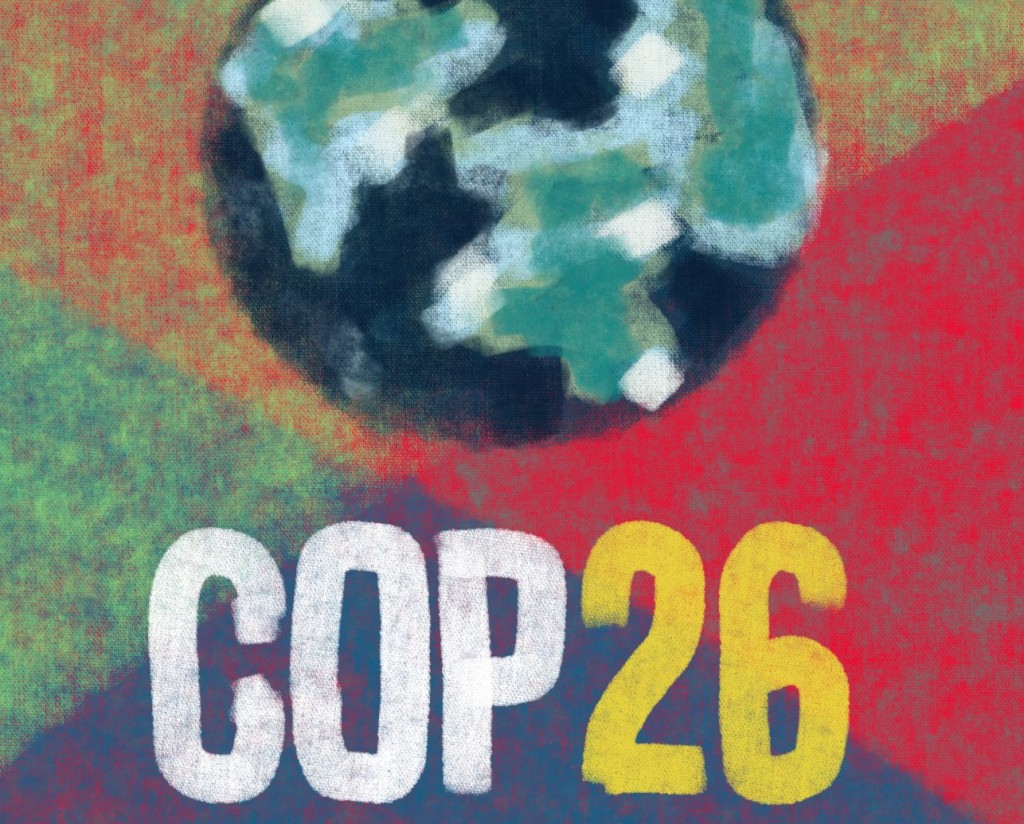
In one of the most heartwarming moments of the entire event, Abby Matin of the Empire Files takes advantage of some sort of women’s day initiative at the conference to level a formidable question to Nancy Pelosi.
COP26 was the incrementalist of incremental steps
By Matthew Fraser, Editor in Chief
Maybe I shouldn’t have been so hard on Greta Thunberg’s “blah blah” speech. COP26 came and went with a lot of nothing and even more disappointment. Flowery words were spoken, photos were taken, hands were shook and nothing was done.
This entire climate change conference managed to go on without a single reference to the American lawyer Steven Donziger who was recently jailed as a by-product of having the temerity to sue a gas giant. Donziger successfully sued Chevron for $9.5 billion after they recklessly polluted large sections of Ecuador. The energy behemoth has yet to pay any of the damages and instead has focused their time, money and energy on punishing Donziger; orchestrating a trial that was condemned by the UN and Amnesty International that resulted in a two-year house arrest then doubling down on it through a second trial that resulted in a six-month prison sentence for a misdemeanour that no American lawyer has ever been jailed for. Donziger has at this point suffered more for suing a polluter than a polluter has ever suffered for their pollution. Yet this went unmentioned at COP26.
The American government was all smiles and “better than Trump”-isms at the conference, yet they were cracked repeatedly by keen media observers. In one of the most heartwarming moments of the entire event, Abby Matin of the Empire Files takes advantage of some sort of women’s day initiative at the conference to level a formidable question to Nancy Pelosi. Martin questions the speaker of the house on how America can be taken seriously as a climate leader when its military pollutes more than a hundred countries combined. Yass Queen, GrrlBoss SLAY!!
Though I admit to having a latent fondness for former President Barack Obama, his speech at COP26 was roundly criticized and I certainly agree. As David Doel points out, Obama literally is the reason that America is one of the world’s worst polluters and he has admitted so himself. For him to pirouette to the position that all countries need to do more and that poor workers need to be considered in the transition is evidence of his hypocrisy. Even if the speech was good, Obama is not the paragon we once thought him to be.
But Canada deserves some kicks too, and I certainly won’t forget to give our own beautiful country the boot that it needs. In April of this year, Ontario, Saskatchewan and New Brunswick released a study that concluded that small modular reactors (SMRs) were feasible and could be built by 2028. These nuclear reactors have often been promoted as a method to addressing increasing power needs in remote or developing areas where renewables are either insufficient or too inconsistent. This also makes them a prime candidate to be exported to developing countries that are industrializing rapidly and turning to coal to meet their energy needs.
Two such countries are India and China. These same two countries would issue a last-minute objection to the COP26 agreement to loosen the coal “phase out” to a coal “phase down.” Worst of all, the initial phase-out was largely toothless, to begin with. If only a country like Canada could make good on its promise to lead the world’s energy transition by offering to export its SMR knowledge to India and aid developing Asian and African nations. If only Canada would commit some of the billions of dollars it has spent propping up fossil fuels to spread its nuclear energy operations around the globe.
Though SMRs (and really any single technology) are not a panacea to climate change, they would certainly help matters more than the empty promises made thus far. And maybe that is the real problem; people on the street are largely incognizant of these failures and are unwilling or unmotivated to launch these types of actions to pressure their governments into action. If more people would directly challenge the American government for increasing its military budget while turning a blind eye to its pollution, we could force a change. If we collectively boycotted Chevron for its actions against Donziger and pressured for his release and the compensation of the Ecuadorian people, we could make a change. But for all of these things, there’s insufficient political drive and little to no public outcry.
Oh, my revolutionary dreams are gone to dust once again after another conference.


